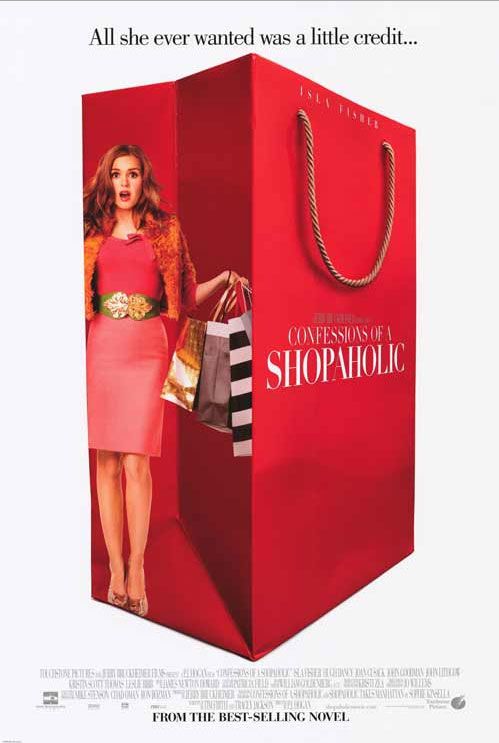Box Office Review: Confessions of a Shopaholic [2009]
Reviewed by Richard Lee Zuras
Released Feb. 13, 2009
1 hr. 45 min.
PG
P.J.Hogan/Bruckheimer Films
Isla Fisher
Hugh Dancy
Krysten Ritter
Critics used to exist to steer folks away from movies like this. In this day and age, people seldom listen to the critics–even when, en masse, the critics rise up and sound the alarm: This film may be hazardous to your health.
No, really. If you are young and therefore impressionable, this is a film that may indeed give you a mixed message wrapped in couture. The whole film, including Isla’s wink at the end as she is drawn to a new pair of shoes (or whatever…I was numb to the gimmicky mannequin trick by then and was having flashbacks of Andrew McCarthy), pretends it is teaching you a lesson on responsibility. Here’s the thing–if 102 physicians tell you that you have a disease, well chances are you do. It is almost impossible to find a critic that does not feel truly insulted by sections of this film. Search the net. Give it a try.
The writing is not only bad, it is an exercise in, and an insult to cliches. One can imagine that the true intended audience for this film is so young they have simply not seen all of this before. Therefore, the audience that enjoys this film is young enough to see (note the squareness of the parents and the mean debt collector who is simply doing his 9-5 job) that it is okay to behave in this manner–not to mention finding it viable that everyone is fabulous looking and people with heavy intellects who run intellectual finance magazines look like Hugh Dancy. Or that with no actual education in such boring things like personal finance a ditzy, arrested development socialite wannabe could pull off writing finance articles that the intellectuals will not only accept but welcome. Gee why didn’t I think of dumbing down economics?
There are messages here that relate to every aspect of our current financial crisis. This movie would be funny IF it were a training film from the 60’s–the kind they used to show high school students. It could be called “Here we have a woman in her early 30’s that has no discernible knowledge of the world around her that also lives with a roommate some 6 or 7 years younger that seems to already know more than she.” Or a high school film called “Addicted to shopping: How you can spot obvious psychology problems.”
There are intelligent attempts in the third act of the film. For a few moments we see that we are not supposed to act like this…but those moments are quickly undermined by acts that force the viewer to again side with the shopaholic who has, and seems likely to continue to, regress. When one watches a movie about alcohol addiction, for instance Leaving Las Vegas, one is not prone to see the addiction in a good light. But then again, if a movie tells you to think, even introspect, and not fall prey to materialism–that film will make less money that this one. Therein lies the APR…
Bottom line 2.0/5.0



Leave a Reply